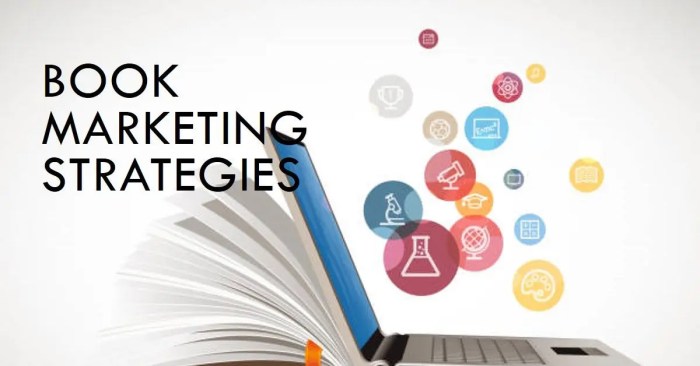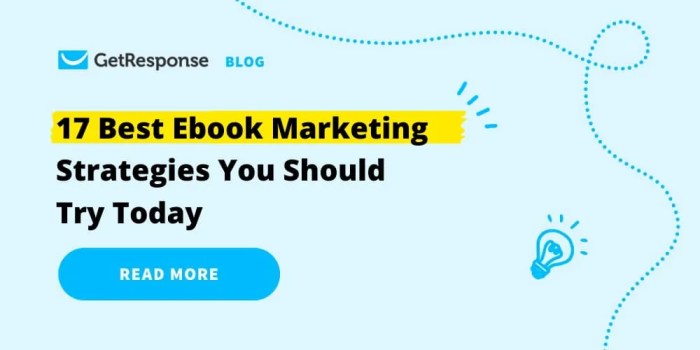
eBook marketing strategies are essential in today’s digital landscape, where the competition for readers’ attention is fierce. Effectively promoting your eBook can make a significant difference in its visibility and sales. By exploring various techniques from banner advertising to leveraging social media platforms, authors and marketers can create a solid promotional plan that connects with their target audience.
Understanding how to utilize email marketing, engage through blogging, and harness the power of online forums will enhance your marketing efforts. Additionally, comparing different eCommerce platforms for eBook sales offers insights into the best channels for distribution. With a thoughtful approach to marketing, your eBook can stand out and reach its full potential.
Digital Marketing Channels for eBooks

In the realm of eBook marketing, leveraging the right digital channels can significantly enhance visibility and engagement. This section dives into specific strategies that harness the power of email marketing, ezine publishing, and internet forums to promote eBooks effectively.
Email Marketing Strategies for eBook Launches
Email marketing remains one of the most effective ways to connect with potential readers and generate buzz around an eBook launch. A well-crafted email marketing strategy can help build anticipation, deliver value, and ultimately drive conversions.When creating an email marketing campaign for an eBook launch, consider the following key elements:
- Segmentation: Tailor your email lists to target specific audiences based on interests, demographics, or past behavior. This approach increases relevance and engagement rates.
- Compelling Subject Lines: Craft attention-grabbing subject lines that entice recipients to open the email. A/B testing different subject lines can help determine what resonates best with your audience.
- Personalized Content: Use the recipient’s name and customize content based on their preferences and past interactions. Personalization enhances connection and can lead to higher conversion rates.
- Call to Action (CTA): Include clear and compelling CTAs that direct readers toward specific actions, such as purchasing the eBook, signing up for a webinar, or sharing the email with friends.
- Timing and Frequency: Strategically schedule emails leading up to the launch, including teasers, launch day announcements, and follow-up reminders. Maintain a balance to avoid overwhelming subscribers.
“Email marketing has an average ROI of 4,400%, making it a powerful tool for eBook promotions.”
Key Elements of Successful Ezine Publishing
Ezines, or electronic magazines, serve as a unique platform for eBook marketing by providing valuable content while subtly promoting an author’s work. Successful ezine publishing can significantly enhance an author’s visibility and credibility.Key elements that connect ezine publishing with eBook marketing include:
- Quality Content: Ensure that the ezine is filled with high-quality articles, tips, and insights related to the eBook’s topic. This establishes authority and attracts readers who are interested in the subject matter.
- Regular Publishing Schedule: Maintain consistency in publishing. A regular schedule keeps readers engaged and anticipating future issues, which can translate to increased interest in your eBooks.
- Engagement Opportunities: Encourage readers to participate by leaving comments, sharing their opinions, or asking questions. This interaction creates a community around your content and enhances loyalty.
- Email List Integration: Use the ezine to grow your email list by offering exclusive content, freebies, or notifications about upcoming eBook releases. This builds a dedicated following.
“An engaging ezine can serve as a powerful marketing tool, driving traffic and interest toward your eBook.”
Leveraging Internet Forums for eBook Promotion
Internet forums provide a unique opportunity to engage directly with potential readers, gather feedback, and generate discussions around eBooks. Participating in relevant communities can help establish credibility and interest.Key strategies for leveraging forums include:
- Identify Relevant Forums: Focus on forums that align with your eBook’s genre or theme. Engaging with the right audience is crucial for effective promotion.
- Contribute Value: Become an active member by providing thoughtful insights, sharing knowledge, and answering questions. This builds trust and positions you as an expert in your field.
- Subtle Promotion: Share your eBook only when relevant or when a member asks for recommendations. Avoid overt self-promotion, as it may lead to backlash.
- Create Dedicated Threads: If allowed, create a thread discussing topics related to your eBook. This can spark conversations and draw in members interested in your content.
“Active participation in forums can lead to organic discussions about your eBook, generating genuine interest and potential sales.”
Leveraging Online Platforms for eBook Sales

In today’s digital landscape, the success of eBook sales is heavily intertwined with effective internet marketing strategies. With millions of titles available online, getting noticed is crucial for authors and publishers. The right marketing tactics can significantly enhance eBook visibility, driving higher sales and broader readership.Internet marketing plays a pivotal role in the promotion and sale of eBooks. Utilizing various strategies, from to social media advertising, enables authors to reach their target audience effectively.
A comprehensive approach blends organic and paid methods, ensuring a well-rounded visibility strategy. For instance, leveraging search engine optimization helps eBooks rank higher on search results, while targeted ads can reach specific demographics likely to be interested in the content.
Comparison of Platforms for Selling eBooks
When selecting an online platform for eBook sales, it’s essential to understand the strengths and weaknesses of various options available. Each platform offers unique features, pricing structures, and audience reach. Here’s a comparison of popular eBook selling platforms:
| Platform | Revenue Share | Key Features | Best For |
|---|---|---|---|
| Amazon Kindle Direct Publishing (KDP) | 70% for eBooks priced between $2.99 and $9.99, 35% for others | Huge customer base, Kindle Unlimited subscription | Writers looking for massive reach |
| Smashwords | 60% to 80% depending on the retailer | Wide distribution, multiple formats | Authors seeking broad market access |
| Kobo Writing Life | 70% for eBooks | International reach, promotional tools | Authors targeting international audiences |
| Apple Books | 70% for all sales | Integration with Apple ecosystem, user-friendly interface | iOS users and Apple device owners |
Utilizing these platforms effectively requires understanding their distinct audiences and promotional options. For instance, KDP is ideal for maximizing exposure through Amazon’s vast marketplace, while Smashwords excels in distributing to various retailers, providing authors with a broader reach.
Promotional Campaign Design for eBook Distribution
Creating a successful promotional campaign for eBooks involves integrating multiple online channels to maximize outreach. A well-structured campaign not only increases sales but also builds brand awareness and engagement. Here’s a breakdown of an effective promotional campaign:
1. Social Media Marketing
Utilize platforms like Facebook, Twitter, and Instagram to create buzz around the eBook launch. Engaging posts, teaser content, and author videos can attract potential readers.
2. Email Marketing
Build an email list and send newsletters to subscribers, offering exclusive content, discounts, or early access to the eBook. Personalized emails can significantly enhance reader interest.
3. Content Marketing
Publish blog posts related to the eBook’s themes, offering valuable insights that tie back to the eBook. This method positions the author as an authority in their niche, drawing in interested readers.
4. Online Ads
Invest in targeted ads on Google and social media platforms to reach specific demographics. Tailor the messaging to resonate with the intended audience, highlighting unique selling points of the eBook.
5. Book Review Campaign
Encourage readers to leave reviews on platforms where the eBook is sold. Positive reviews can enhance credibility and attract new readers.
6. Affiliate Programs
Set up an affiliate marketing program, allowing bloggers and influencers to promote the eBook for a commission. This expands reach and leverages the existing audiences of affiliates.By integrating these strategies, authors and publishers can create a comprehensive promotional campaign that utilizes diverse online channels, ensuring that the eBook reaches its maximum potential audience.
Summary
In summary, mastering eBook marketing strategies is crucial for anyone looking to succeed in the digital publishing world. By implementing various promotional techniques and choosing the right marketing channels, you can boost your eBook’s visibility and drive sales effectively. Remember, the right strategy not only enhances your reach but also builds a loyal reader base, ensuring your continued success as an author.
FAQ Explained
What is the best platform for selling eBooks?
The best platform can vary based on your target audience, but popular choices include Amazon Kindle Direct Publishing, Smashwords, and your own website.
How important is email marketing for eBooks?
Email marketing is crucial as it allows you to directly reach potential readers, build relationships, and drive sales through targeted campaigns.
Can blogging help in eBook marketing?
Absolutely! Blogging can engage your audience, provide value, and create interest around your eBook topics, driving more traffic to your sales page.
How can social media be used for eBook promotion?
Social media is a powerful tool for creating buzz around your eBook, sharing content, and engaging with readers through interactive posts and promotions.
What role does branding play in eBook marketing?
Branding helps establish your identity as an author, making your eBooks recognizable and building trust with your audience, which can encourage purchases.





